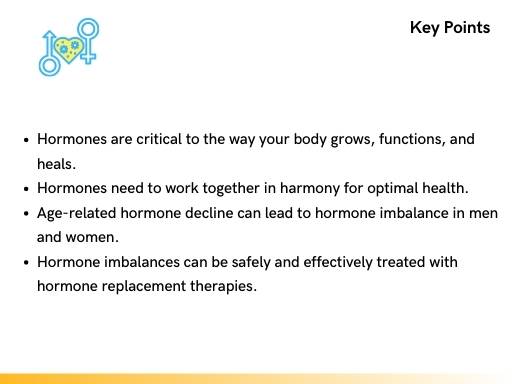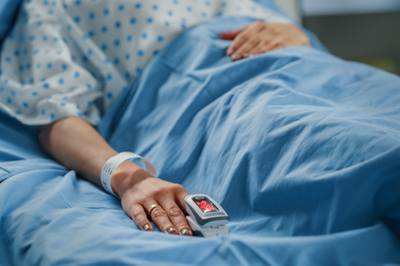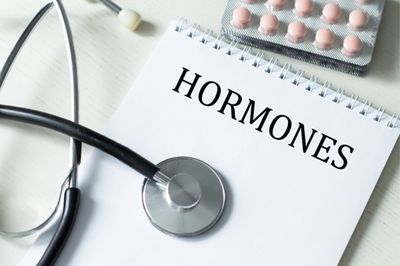 Hormones are your body’s chemical messengers. Hormones are key to just about every major biological function. Hormones regulate or influence your emotional, physical, and sexual health.
Hormones are your body’s chemical messengers. Hormones are key to just about every major biological function. Hormones regulate or influence your emotional, physical, and sexual health.
Hormones all work together in a delicate balance to optimize your health and wellbeing. Once the level of any one hormone is “off,” it can and does through the whole system out of sync. Such hormone imbalances can lead to any number of wellness challenges.
There can be any number of reasons for a hormone imbalance, but one of the most common causes of hormone imbalance is age-related hormone decline. Critical hormones such as the sex hormones, testosterone and estrogen, and human growth hormone (HGH) all decline as we age.
That is why men and women over the age of 45 need to be aware of the signs and symptoms of age-related hormone imbalance and how hormone replacement therapy can be used to treat them effectively.
What is a Hormone Imbalance?
A hormone imbalance occurs when hormones essential to good health and bodily functions rise above or drop below their normal levels. While a hormone imbalance can technically be caused by too much of a given hormone, the more common problem is too little of a critical hormone such as testosterone or human growth hormone.
When you think of hormone imbalances, you may think right away of women. However, men, as well as women, can suffer from hormone imbalances.
Hormones are chemical messengers that are critical to many bodily functions in both genders. Hormones in both men and women control or regulate growth, sexual performance, immune function, moods, metabolism, and more.
What Causes Hormonal Imbalance?
There are several different kinds of hormones produced by the glands of your body. There are sex hormones, hormones that regulate your metabolism, your ability to build muscle, your moods, and more. Most hormones are produced and released by the organs of the endocrine system.
The endocrine glands are:
- Hypothalamus
- Pituitary
- Thyroid
- Adrenals
- Pineal
- The ovaries
- The testes
Together these glands regulate:
- Metabolism and digestion
- Cellular growth and repair
- Blood pressure
- Sex drive, sexual performance, and fertility
- Mood, cognition, and stress
As you can see, since hormones are involved in so many bodily functions, a hormone imbalance can lead to any number of negative health issues.
The causes of hormonal imbalances can be as varied as the hormones your body produces and the biological systems they regulate. Hormonal imbalances can be caused by:
- Genetic conditions
- Tumors or cancer
- Injury or trauma to endocrine glands
- Diabetes, pancreatitis, and other metabolic diseases and conditions
- Certain medications
- Stress
- Age-related hormone loss
In otherwise healthy men and women, particularly those over 40, the main reason for a hormone imbalance is age-related hormone decline.
Women are well familiar with the age-related drop in female hormones that causes the many debilitating symptoms of menopause. Men also lose critical hormones as they age, leading to a similar condition known as andropause.
In women, menopausal symptoms are mostly caused by the loss of estrogen that occurs once women cease their regular menstrual periods. In men, the symptoms of andropause are primarily caused by age-related loss of testosterone. Unlike the symptoms of menopause-related hormone imbalance in women that happen at a predictable time in their lives, andropause-related hormone imbalances happen more gradually over time.
A woman’s testosterone level also drops as she ages, and this, too, contributes to age-related hormonal imbalances in women. Human growth hormone, or HGH, levels drop as both men and women age. Age-related growth hormone deficiency can cause hormone imbalance in either gender.
Signs and Symptoms of Hormone Imbalance
There are many hormones, and each has its own specific signs and symptoms of being out of balance. However, the signs and symptoms of a hormone imbalance that suggest you should see your doctor include the following:
- Sexual health issues such as lack of sex drive or chronic erectile dysfunction
- Fatigue and lack of energy
- An inability to build muscle or lose weight even when dieting or exercising
- Stress and anxiety
- Disturbed sleep
- Sudden and unexplained weight loss
- Inability to adequately regulate your body temperature
- Excessive sweating
- Dry skin or skin rashes
- Heart palpitations and changes in blood pressure
- Infertility
- Acne and other skin issues
- Mood swings
- Changes in appetite
- Deepened voice (Women)
- Soreness in breasts (Women)
- Swollen face
- Headaches
- Difficulty concentrating
- More or less frequent urination or bowel movements
- Dry skin
- Skin rashes
- Weak bones
- Thinning hair and hair loss
- Changes in blood sugar
- Excessive thirst
- Vision problems
- Long-lasting fatigue
How is Hormonal Imbalance Diagnosed?
While any combination of the symptoms above could be indicative of hormonal imbalances, the only way to diagnose a hormone issue is to have the hormone levels in your blood tested.
Testing your hormone levels can usually be done with simple blood tests known as “hormone panels.” In these tests, your doctor will take several vials of your blood and test them on-site or have them sent to a lab to have your hormone levels evaluated.
What if Hormone Imbalance Goes Untreated?
 If a hormone imbalance goes untreated, the symptoms being caused by that particular hormone imbalance will only get worse, leading to some very severe health consequences. For example, diabetes, a condition caused by a failure of your body to make insulin – the hormone responsible for removing sugar from your blood – could lead to blindness, limb loss and even death.
If a hormone imbalance goes untreated, the symptoms being caused by that particular hormone imbalance will only get worse, leading to some very severe health consequences. For example, diabetes, a condition caused by a failure of your body to make insulin – the hormone responsible for removing sugar from your blood – could lead to blindness, limb loss and even death.
While leaving other hormone imbalances untreated may not be fatal, they can still seriously impact your health and your quality of life.
Furthermore, the most harmful thing about ignoring a hormone imbalance may not even be the worsening of symptoms but failing to find out what could be causing it. Since the cause of a hormone imbalance can sometimes be a very serious genetic condition or disease such as cancer, a hormone imbalance could be a sign of a deeper underlying medical issue, which could be quite dangerous if left untreated.
Therefore, it is critically important for you to speak to your doctor if you are experiencing any of the symptoms of hormone imbalance mentioned above or if anything seems to be “off” or out of the ordinary for you physically or emotionally. This is particularly true if you notice sudden changes in sleep, appetite, weight, or sex drive.
There is a common and dangerous misconception that hormonal imbalances are a normal part of living, they happen to everyone, and they are nothing to worry about. While common, hormone imbalances are not “normal” and should not be accepted as such and should never be ignored.
What Kind of Doctor Should You See for Hormone Imbalance
Most of your body’s hormones are produced and regulated by the glands of the endocrine system. Therefore, doctors that treat hormone imbalances and other hormone issues are known as endocrinologists.
While any doctor could, in theory, diagnose a hormonal disorder and potentially prescribe proper treatment, if you suspect you have a hormone imbalance, it is best to work with an endocrinologist. Hormones must all work together in harmony for good health. It is kind of a delicate dance to keep them all in balance. If you are suffering from an imbalance of one critical hormone, like low testosterone, for example, chances are your levels of other critical hormones, such as HGH, are off as well.
Endocrinologists, like those that work at our hormone clinics, have the skills and experience to recognize hormone imbalances on a holistic level and prescribe hormone replacement therapies designed not only to raise any one particular hormone, but to bring the whole system back in balance for optimal health.
Hormone Replacement Therapy to Treat Hormone Imbalance
 The key to treating any kind of hormone imbalance is to return the hormone or hormones in question to their more normal levels. While a hormone imbalance can mean too much or too little of a given hormone, the most common type of hormone imbalance is caused by the level of a critical hormone – such as testosterone or HGH – being below normal.
The key to treating any kind of hormone imbalance is to return the hormone or hormones in question to their more normal levels. While a hormone imbalance can mean too much or too little of a given hormone, the most common type of hormone imbalance is caused by the level of a critical hormone – such as testosterone or HGH – being below normal.
The most common cause of lower-than-normal HGH and/or testosterone in otherwise healthy adults is age-related hormone loss. As important as HGH and testosterone are to your overall health, the levels of both critical hormones drop as you age. This age-related hormone decline can lead to low testosterone, adult-onset growth hormone deficiency, or both.
The good news is both of these conditions can be treated, and your hormones can be brought back into proper balance with hormone replacement therapy. Testosterone therapy and/or growth hormone replacement therapy in patients suffering from age-related hormone in balance has been shown to:
- Increase strength and stamina.
- Raise your energy level.
- Improve sex drive and sexual performance.
- Improve sleep.
- Increase your ability to burn fat and build muscle.
- Help you to lose unwanted fat.
- Improve moods.
- Improve memory and cognition.
- Strengthen bones and reduce the risk of osteoporosis.
Conclusion
Maintaining balanced hormone levels is critical to good health. Even taking other measures to stay healthy and keep your hormone levels high, age-related hormone loss can be inevitable. Hormone replacement therapy is a safe and effective way to give you back what time and nature take away.

